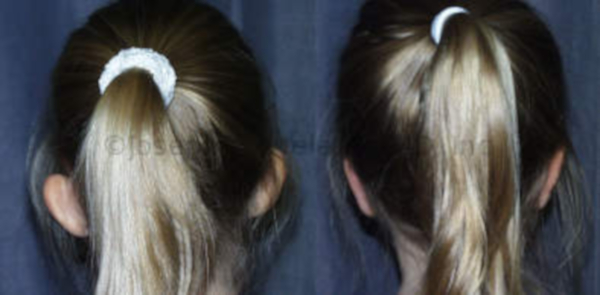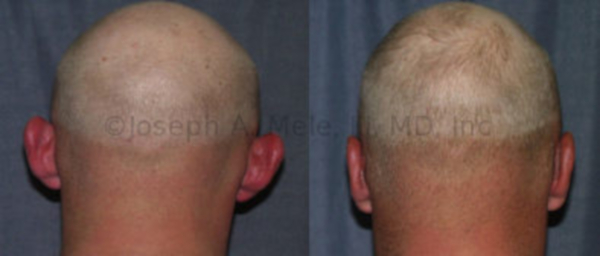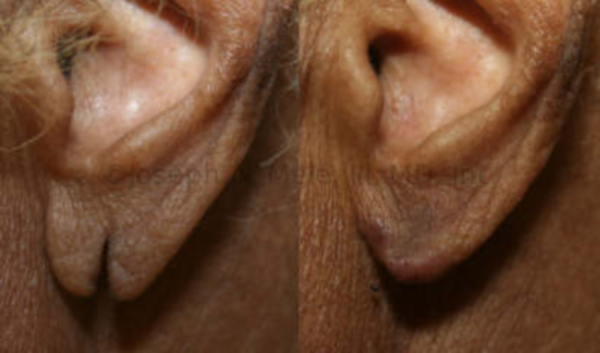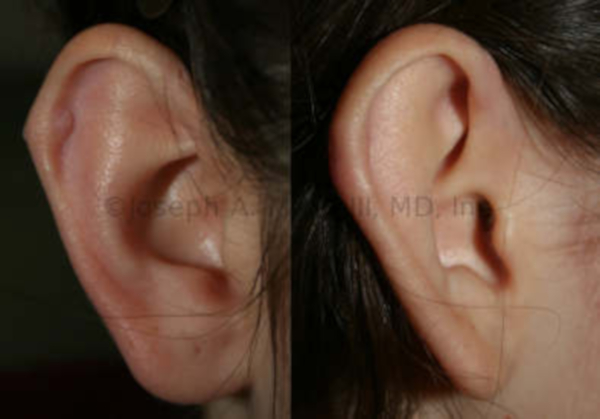Otoplasty means ear changing, and it is a cosmetic plastic surgery procedure used to enhance the ears, most commonly to pin back ears that stick out. It can also apply to the correction of Spock ears, Stahl’s ears, cupped ears, lop ears and even cauliflower ears. Today’s post discusses Otoplasty and and how ear aesthetics can be improved.
Otoplasty For Children

Ear pinning is performed for children five and older when the ears stick out too far.
Otoplasty is performed for children when they reach age five. The reason for waiting is that by age five, the ear has reached 85% of its adult size, so a safe and predictable result is possible. Fortunately, teasing is less common before age five also.
For children, ear pinning is performed in an outpatient surgery center. The head remains wrapped for a week to protect the repair. Oral pain medication is available for postoperative discomfort which normally lasts a few days. Keeping the head elevated helps minimize swelling and speeds recovery
Doing surgery for a minor requires consent of the guardian, but since the surgery is on the child, the child has to agree that the ears are a problem. If the child is okay with their ears, surgery is not recommended, no matter how far they stick out. If the prominence of their ears becomes bothersome in the future, Otoplasty can always be performed.
Otoplasty For Adults

Otoplasty is frequently performed for young adults, although the appearance of their ears has usually bothered them since their youth.
A second, and larger peak age for Ear Pinning is during young adulthood. The appearance of their ears has often been problematic since they were children, but cosmetic surgery may not have been in the family budget.
It is common for young adults to disguise the prominence of their ears with long hair. However, sometimes long hair is not an option, for example, when entering the workforce. Fortunately, with a relatively short procedure, Otoplasty can dramatically improve the appearance of prominent ears and eliminate the need to hide the ears.
Adult Otoplasty is similar to that for children, but since adults can be more cooperative during the procedure, local anesthesia with sedation is an adult option. Local anesthesia decreases postoperative nausea and drowsiness. The downside is that you are awake. You have to tolerate the administering of the local anesthesia and you will hear what I am doing during surgery. For many patients; however, these are not issues or concerns.
Other Ear Changing Procedures
Ear pinning is performed for prominent ears. Other Otoplasty procedures are performed for ears which are malformed. Some of the more common reasons are:
-
Traumatic Ear Injuries –
- Stretched out or Torn Earlobes
- Piercing Injuries
- Cauliflower Ears
- Prominent Ears
- Stahl’s Ears (Spock Ears)
- Cup Ears (Lop Ears)
Birth Defects –

Earlobe repair is another type of otoplasty. In this case, her earrings have pulled through the skin leaving a split earlobe.
The most common traumatic injury to the ear is a torn ear lobe. It can happen during a fight, while removing a sweater or even as the result of the long term wearing of earrings or gauges that stretch the earlobe to its breaking point.
For repair, the skin lining the split needs to be removed. Any excess skin is excised, and then the repair is made to create a normal appearing earlobe. There is always a resultant scar, but often it is a good scar, and preferable to a split earlobe.

The lump is the upper ear is from a piercing. It was repaired by removing the skin track of the piercing and trimming the deformed cartilage.
Plastic surgeons are not fans of cartilage piercing because when things go badly, we have to fix them. The before and after pictures above are for a relatively minor piercing injury where the cartilage has grown (hypertrophied) in response to the chronic irritation of the bar placed through the ear. Just like in cases with the more extensive Cauliflower Ear Deformity, the excess cartilage is removed and the skin repaired within the fold of the edge of the ear (the helix).
Otoplasty Consultations
Otoplasties are something we do regularly in my Walnut Creek Plastic Surgery center. In over 20 years of practice, I have fixed hundreds of ears for many happy patients. If you are considering cosmetic ear surgery, be certain to consult an experienced and board certified plastic surgeon. In the San Francisco Bay Area call (925) 943-6353 to schedule a private consultation appointment to learn if Otoplasty is right for you.
Previous Post Next Post